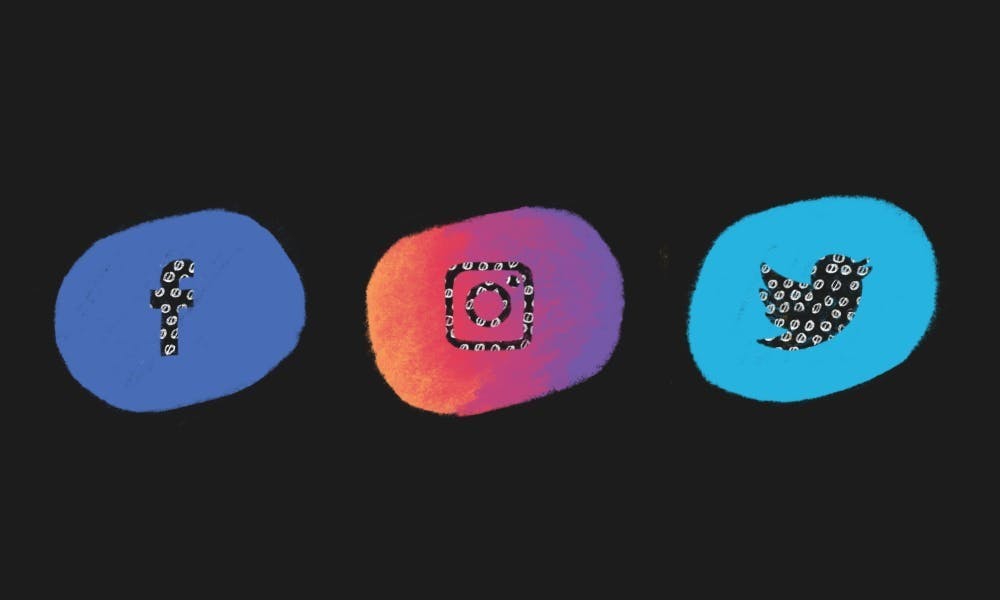The murder of George Floyd at the hands of the police in Minneapolis has sparked outrage across the United States and beyond, serving as the spark that ignited protests over years of police brutality and discrimination towards the Black community.
Before people began taking to the streets in protest, the movement began to gain traction on social media. These sites became a platform for people to share information, express their outrage, and stand in solidarity with those fighting against police brutality.
Popular social media sites, such as Facebook, Twitter, TikTok, and Instagram were soon a way for people to post petitions, share fundraisers, and spread educational resources on the matter. However, there was soon a concern that some people were using these sites as a form of performative activism—sharing pictures and resources as a way to look good in front of followers, instead of a genuine support for the cause.
It’s important to consider the role of social media during times like these, especially since there are so many public figures with platforms that amass a major following. What is their role in this situation?
These online personalities frequently use their platforms to share content, which largely influences the users that make up their following. These sites are mainly used for promotional purposes, showcasing a stream of ads that promote certain products or artistic content, including music and TV shows.
Knowing that many celebrities have the power to influence so many users with the swift tap of a screen, they should use their platforms beyond monetary interest to bring light to important humanitarian issues—making sure to educate themselves first as to not spread misinformation. Oftentimes, celebrities with millions of followers have the power to spark conversations around topics that must be discussed.
However, we have to question whether using online platforms to share a couple of stories and add a hashtag is enough. Celebrities may feel pressured to speak out on the matter only to save face, resurfacing the issue of performative activism.
Notably, “Glee” star Lea Michele shared a tweet using #BlackLivesMatter, only to be called out by co-star Samantha Ware for making the Glee experience a “living hell” and for countless “traumatic microaggressions” against her for being Black.
Other celebrities, including those in the Kardashian–Jenner clan, have been heavily criticized for not addressing the matter publicly and sticking to sharing Instagram stories.
On the other hand, some public figures have used their platforms to share links to petitions, start conversations with their followers, and share educational resources. A smaller group has even marched out in solidarity with the movement.
These include personalities such as Jamie Foxx, Nick Cannon, Ariana Grande, and Timothée Chalamet. They have shed their “celebrity” status as they march along with protestors, facing risks that any person in the march may face. Notably, singer Halsey was shot with a rubber bullet as she protested in Los Angeles, and actor Cole Sprouse was arrested in Santa Monica.
Actor John Boyega, known for his role as Finn in Star Wars, made an emotionally–charged public speech at a London protest, stating that, even though having a major role in the protests could affect his opportunities in the movie industry because of his race, this situation is vital and requires that people speak up.
He said, “I need you to understand how painful it is to be reminded every day that your race means nothing, and that isn’t the case anymore.”
Boyega reminded the crowd of the people who they were fighting for, urging everyone to protest peacefully and to create a future free of discrimination a reality for Black youth.
A video of actress Keke Palmer also began to make the rounds on social media, as she spoke directly to the National Guard during a protest, “... march beside us and show us that you’re here for us, make history with us.”
Although celebrities should not be praised for attending protests, as speaking up about this issue is necessary, it has definitely led to appreciation by fans on social media. One fan took to Twitter to express how, as a Black fan, it was meaningful to see Harry Styles protesting in the streets of Los Angeles.
We currently occupy a society in which social media is ubiquitous to everyday life, serving as a way to communicate with others and learn about current events. For this reason, public figures with large followings have to be aware of the potential they have to influence their followers, and be cautious with the messages they are relating to their audiences. By continuing to use these platforms, they are accepting the responsibility of informing themselves about major issues, knowing that their voices are heavily amplified in situations like these.







